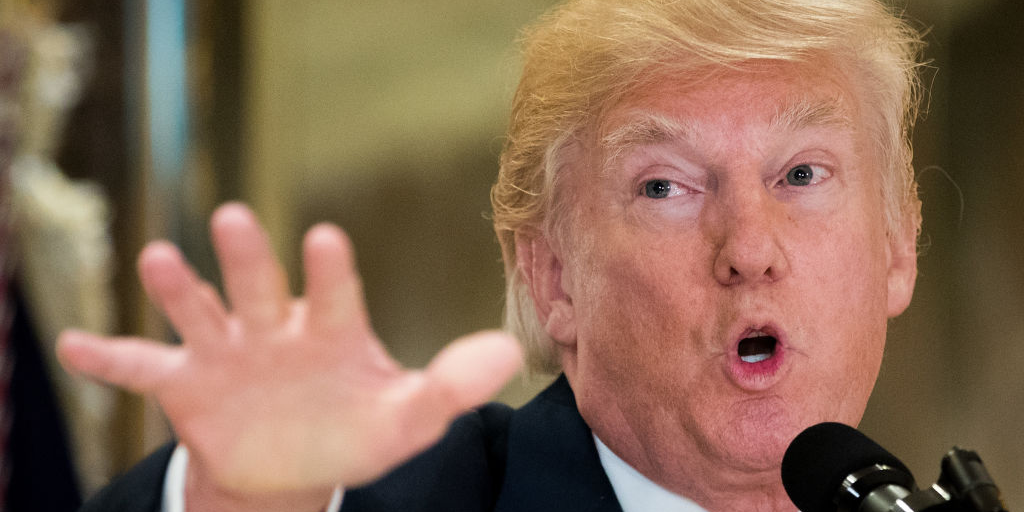- Negotiations between the US and the Taliban are entering their ninth round. But, as Politico reports, Donald Trump’s very public desire to withdraw from Afghanistan is making his negotiators’ jobs much more difficult.
- Trump has loudly called for exactly what the Taliban are seeking, a total US troop withdrawal. This has undermined US negotiators who are seeking guarantees that the Taliban won’t harbor terrorists capable of attacking Americans.
- Trump’s statements have “given the Taliban an incentive to delay and harden their demands to see if they can get what they want for free,” according to Christopher Kolenda, a retired Army colonel with experience with the Taliban.
- Visit INSIDER’s homepage for more stories.
As withdrawal negotiations between the US and the Taliban enter their ninth round, President Donald Trump continues to weaken the US’s negotiating power by threatening to give the Taliban exactly what it wants – a total US troop withdrawal.
As Wesley Morgan points out in Politico, Trump’s private exhortations and public proclamations that he wants to bring US troops home have given the Taliban little reason to give the US what its negotiators seek – a guarantee that Afghanistan won’t be used as a launching pad for extremist attacks against the US, a reduction in violence in the country, and efforts to unify the highly tribal country.
“The Taliban are reading these things and saying, ‘Let’s see if we can get this drawdown timeline at least cost,'” Christopher Kolenda, a retired Army colonel who has participated in backchannel talks with Taliban representatives, told Politico.
“It’s easy enough to get to a deal if all you want is to get out. But the danger is the Taliban will play for time while the drawdown goes on. They can delay, prevaricate, while our troops are dwindling, and then just fire up the military campaign again.”
Trump's top Afghanistan negotiator, Zalmay Khalilzad, has had to "negotiate with one hand behind his back and given the Taliban an incentive to delay and harden their demands to see if they can get what they want for free" because of Trump's public impatience with the Afghanistan conflict, Kolenda said.
The Afghanistan war enters its 19th year and the US struggles to prop up the central government as the Taliban gains ground. The Global Peace Index recently rated it the most dangerous country in the world,
Trump sees himself as a master negotiator, but his penchant for making rash national security proclamations, sometimes via tweet, also has some officials on edge; Trump's declaration that the US would pull troops out of Syria caused Defense Secretary Jim Mattis and Syria envoy Brett McGurk to leave the administration, and contributed to the resurgence of the Islamic State in Syria and Iraq.
During his Syria tweetstorm, and just after he had named Khalilzad his top envoy, Trump also said that he wanted half of all US troops to leave Afghanistan. He was eventually talked down from that decision by Sens. Lindsey Graham and Mitch McConnell, but at the time, defense officials were in a tailspin, Politico reports.
"The president said, 'Let's do this,' and nobody was ready for that," a former defense official told Politico. "That caused quite a bit of consternation. The State Department was looking to [the Pentagon] like, 'What is this drawdown,' and we were like, 'Uhhh?'"
"The timing couldn't have been worse. It was severely damaging," said another military official who had recently been in Afghanistan. "We've probably gone double the rounds [of negotiations] because the Taliban were like, 'Hey, you're leaving anyway. Why should we negotiate?'"
Trump's team continues to say the negotiations are moving along smoothly. After Khalilzad briefed Trump and his national security team in a closed-door meeting at Trump's Bedminster, New Jersey golf course, Trump tweeted: "Just completed a very good meeting on Afghanistan. Many on the opposite side of this 19 year war, and us, are looking to make a deal - if possible!"
But without knowing the substance of the negotiations, it's impossible to tell what the outcome might be. Without the bargaining chip of US military power, the end of US involvement in Afghanistan is unlikely to look anything like peace.

